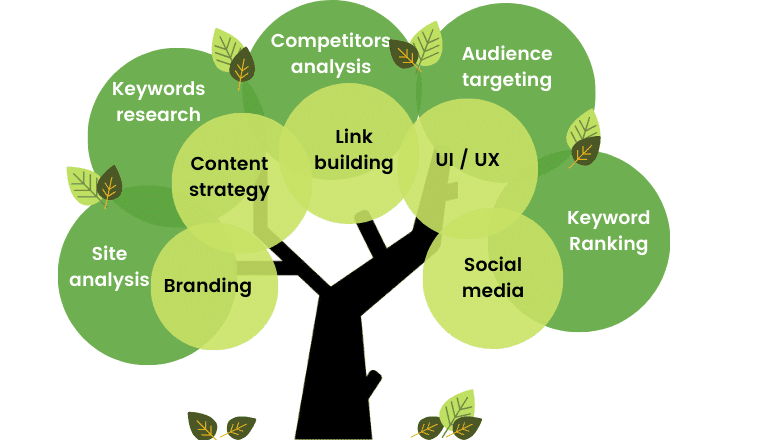Combining Traditional and Modern Islamic Education
The integration of traditional and modern Islamic education is transforming how Muslims worldwide approach learning

The integration of traditional and modern Islamic education is transforming how Muslims worldwide approach learning. In today’s digital age, platforms like Quran Classes Online are bridging the gap between time-honored religious teachings and contemporary educational tools. This blend ensures that the timeless wisdom of Islam reaches a global audience while adapting to modern advancements.
The Importance of Islamic Education
Islamic education has always been a cornerstone of the Muslim community. It teaches the principles of the Quran, Sunnah, and Fiqh, nurturing spiritual growth and moral character. However, with the demands of modern life, it is crucial to balance these teachings with contemporary knowledge, equipping students with skills for both this world and the hereafter.
Traditional Islamic Education: A Timeless Foundation
Traditional Islamic education focuses on the classical study of the Quran, Hadith, Tafseer, and Arabic grammar. Madrasas and Dars Nizami systems have been instrumental in preserving Islamic knowledge for centuries. Key features include:
-
Memorization of the Quran (Hifz): Students dedicate years to perfecting their recitation and committing the Quran to memory.
-
Fiqh and Sharia Studies: Detailed study of Islamic jurisprudence ensures students understand religious obligations and rulings.
-
Hadith Studies: Learning the sayings of Prophet Muhammad (PBUH) fosters a deeper connection to the Sunnah.
These institutions emphasize discipline, respect for knowledge, and a strong teacher-student relationship, forming the backbone of Islamic education.
Modern Islamic Education: Adapting to Change
Modern Islamic education incorporates contemporary subjects like science, mathematics, and technology alongside traditional religious studies. This approach ensures that students are prepared for global challenges. Features of modern Islamic education include:
-
Online Learning Platforms: Innovations like Quran classes online allow students to access Islamic knowledge from the comfort of their homes.
-
Integration of Secular Education: Subjects like mathematics, physics, and economics are taught to complement religious studies.
-
Multilingual Resources: Offering courses in various languages makes Islamic education accessible to diverse communities.
Why Combine Traditional and Modern Islamic Education?
A comprehensive educational approach that combines both systems offers numerous benefits:
-
Holistic Development: Students gain spiritual wisdom and practical skills, ensuring personal and professional success.
-
Global Accessibility: With Quran classes online, people from remote areas can learn from qualified teachers without geographical barriers.
-
Relevance in the Modern World: Balancing faith and contemporary knowledge prepares students for real-world challenges while staying true to Islamic principles.
How Technology is Revolutionizing Islamic Education
Technology has played a pivotal role in modernizing Islamic education. Online platforms and tools have opened doors for millions to access quality religious education. Some significant advancements include:
Online Quran Classes
Platforms offering Quran classes online have gained popularity due to their flexibility and accessibility. Key benefits include:
-
Convenience: Learn from home at a time that suits your schedule.
-
Personalized Learning: One-on-one sessions cater to individual needs.
-
Qualified Teachers: Access to experienced instructors from around the world.
Mobile Applications
Islamic educational apps provide resources such as Quran translations, prayer times, and tafseer. Popular apps also include quizzes and games to engage younger audiences.
Virtual Reality (VR) and Augmented Reality (AR)
Emerging technologies like VR and AR offer immersive experiences, such as virtual tours of holy sites or interactive lessons on Islamic history and culture.
Digital Libraries
Online libraries host a vast collection of Islamic books, journals, and scholarly articles, making research and self-study more accessible than ever before.
Challenges in Integrating Traditional and Modern Education
While the integration of these two systems has numerous benefits, it is not without challenges. Some common obstacles include:
-
Resistance to Change: Traditional institutions may be hesitant to adopt modern methodologies.
-
Resource Limitations: Setting up online platforms and digital tools requires significant investment.
-
Quality Assurance: Ensuring the credibility of online teachers and materials is crucial.
Success Stories of Combined Islamic Education
Example 1: Online Quran Academies
Institutions offering Quran classes online have successfully combined traditional memorization techniques with modern technology. Students learn Tajweed, Tafseer, and Hifz through live video sessions, interactive tools, and progress tracking systems.
Example 2: Islamic Schools with Dual Curricula
Many Islamic schools worldwide offer dual curricula, combining religious studies with secular subjects. These schools produce well-rounded graduates who excel academically and spiritually.
Example 3: International Islamic Universities
Universities like Al-Azhar and the International Islamic University Malaysia (IIUM) integrate traditional Islamic teachings with modern academic disciplines, fostering global leaders.
Tips for Balancing Traditional and Modern Education
-
Set Clear Goals: Determine the objectives of combining both systems and align them with the institution’s vision.
-
Utilize Technology: Incorporate tools like online courses, apps, and e-books to enhance traditional learning methods.
-
Promote Teacher Training: Equip teachers with modern skills to effectively deliver both traditional and contemporary subjects.
-
Engage Parents: Encourage parents to support a balanced education system for their children.
-
Encourage Critical Thinking: Foster an environment where students can question, analyze, and apply their knowledge in real-life situations.
The Future of Islamic Education
The future of Islamic education lies in finding the perfect synergy between tradition and modernity. As technology continues to advance, the opportunities for growth are limitless. Here are some trends to watch:
-
AI-Powered Learning: Artificial intelligence can personalize learning experiences based on student performance.
-
Global Collaboration: Online platforms can connect students and teachers across continents, promoting cross-cultural understanding.
-
Sustainable Education Models: Combining traditional and modern methods ensures the preservation of Islamic knowledge while adapting to future needs.
Conclusion
Combining traditional and modern Islamic education is a step forward in ensuring the relevance of Islamic teachings in the 21st century. By embracing tools like Quran classes online, we can preserve the rich heritage of Islam while equipping students with the skills needed for today’s world. This harmonious blend not only strengthens faith but also empowers individuals to contribute positively to society.
What's Your Reaction?
















